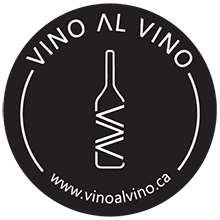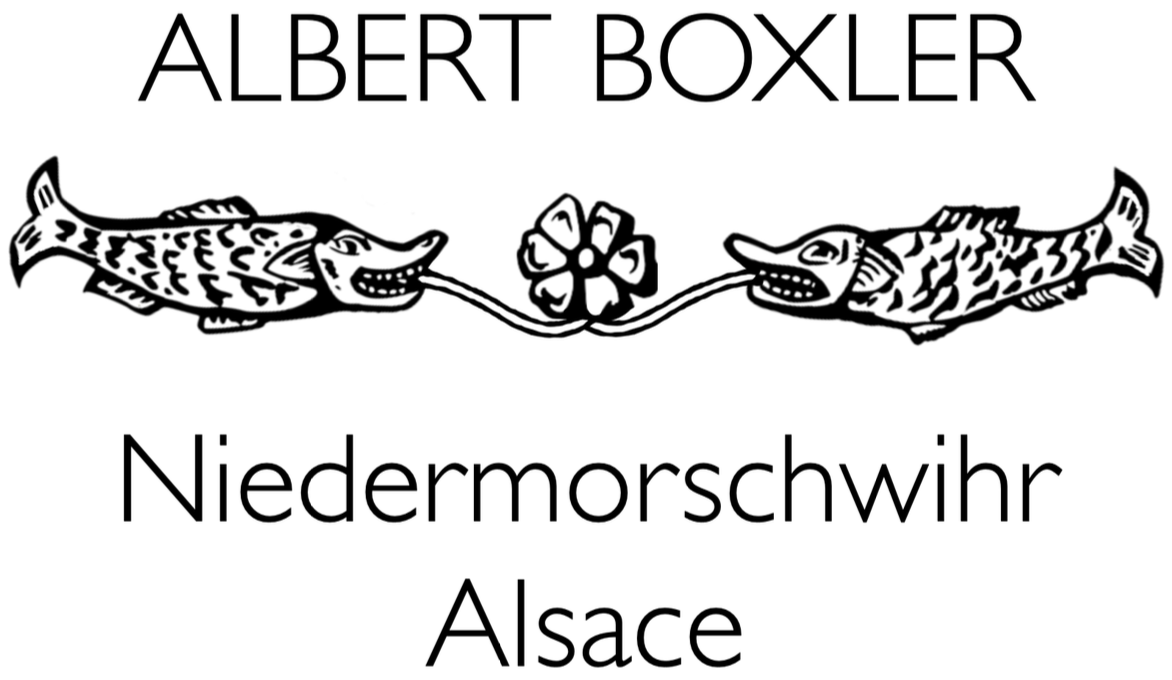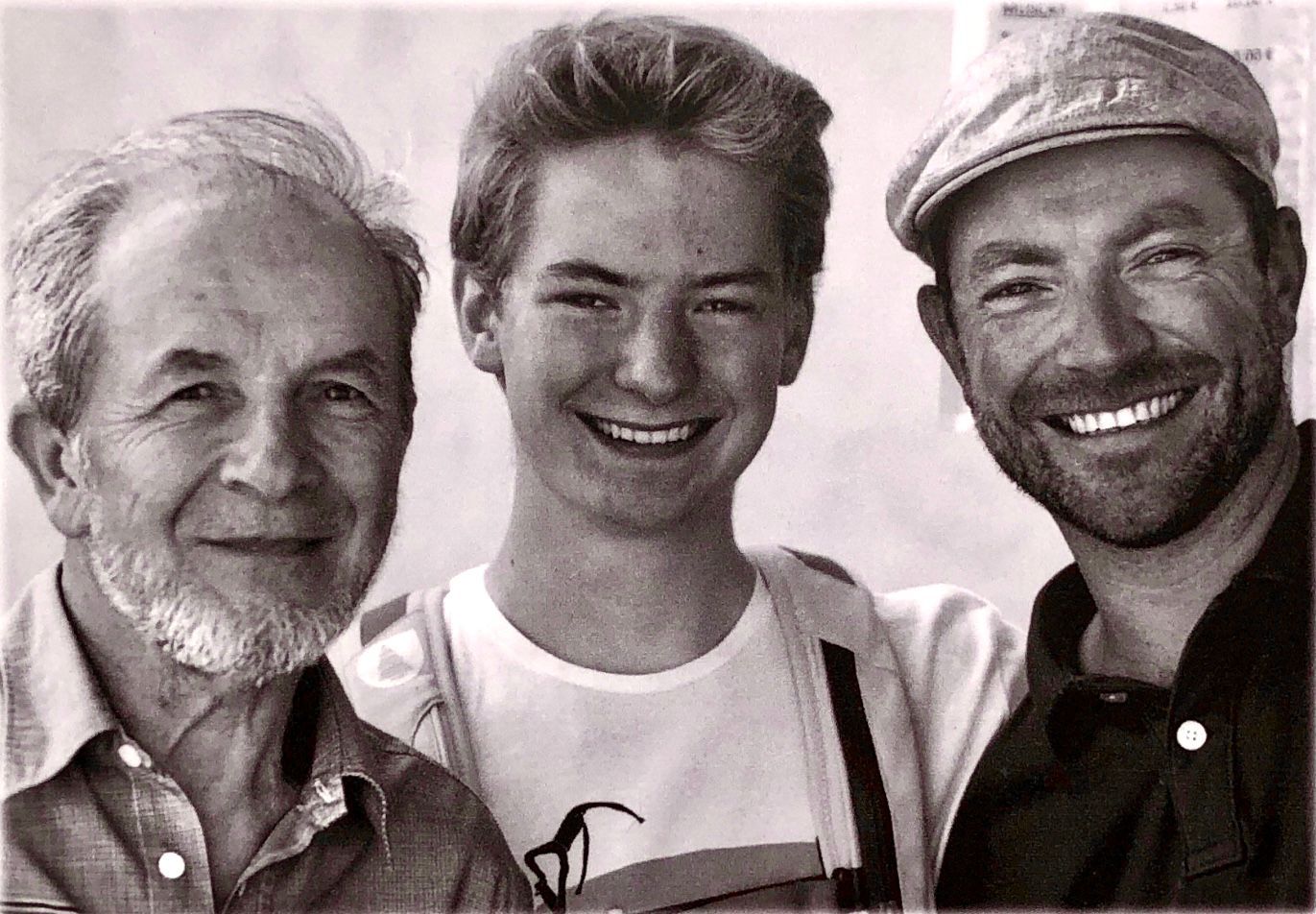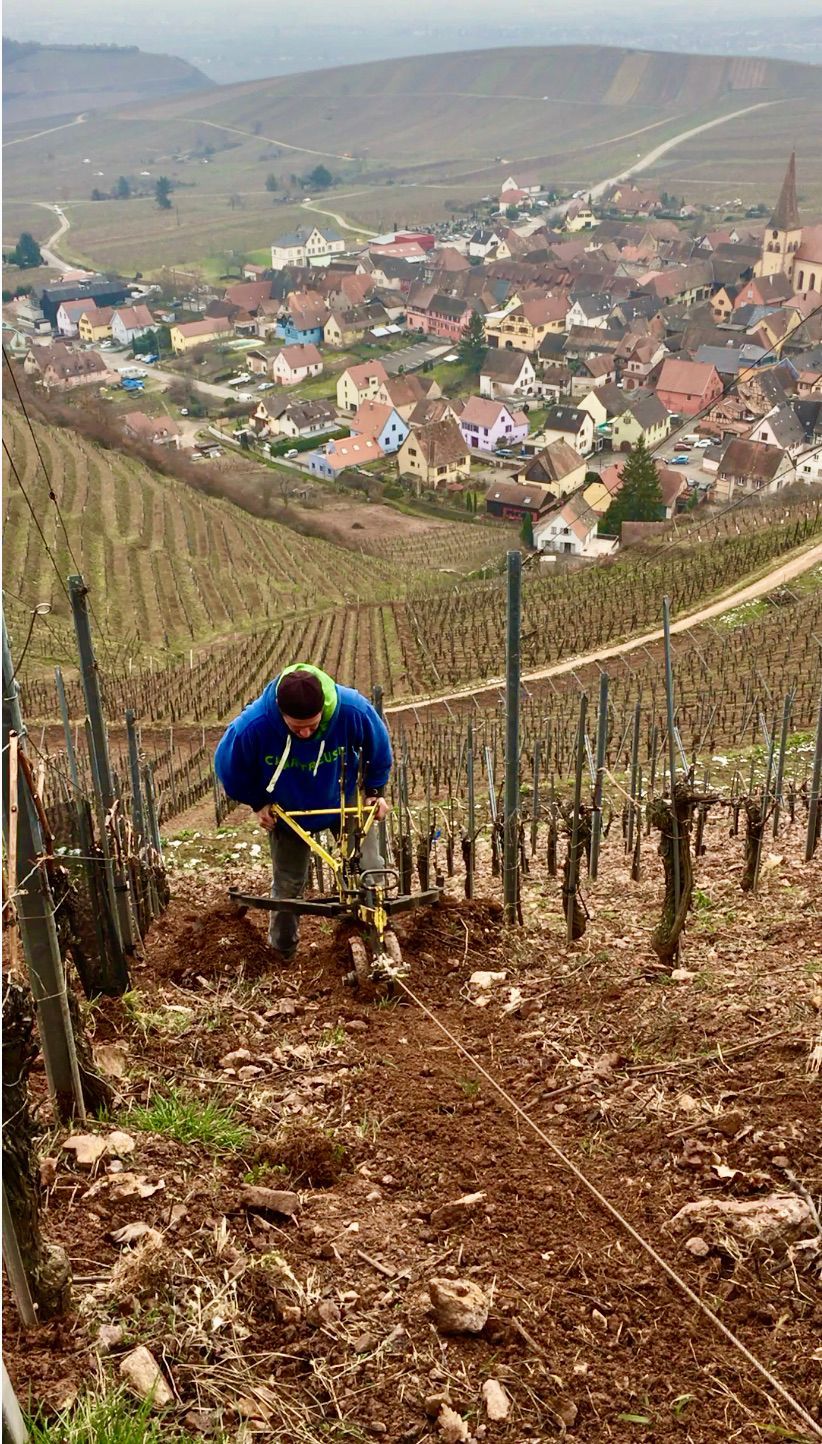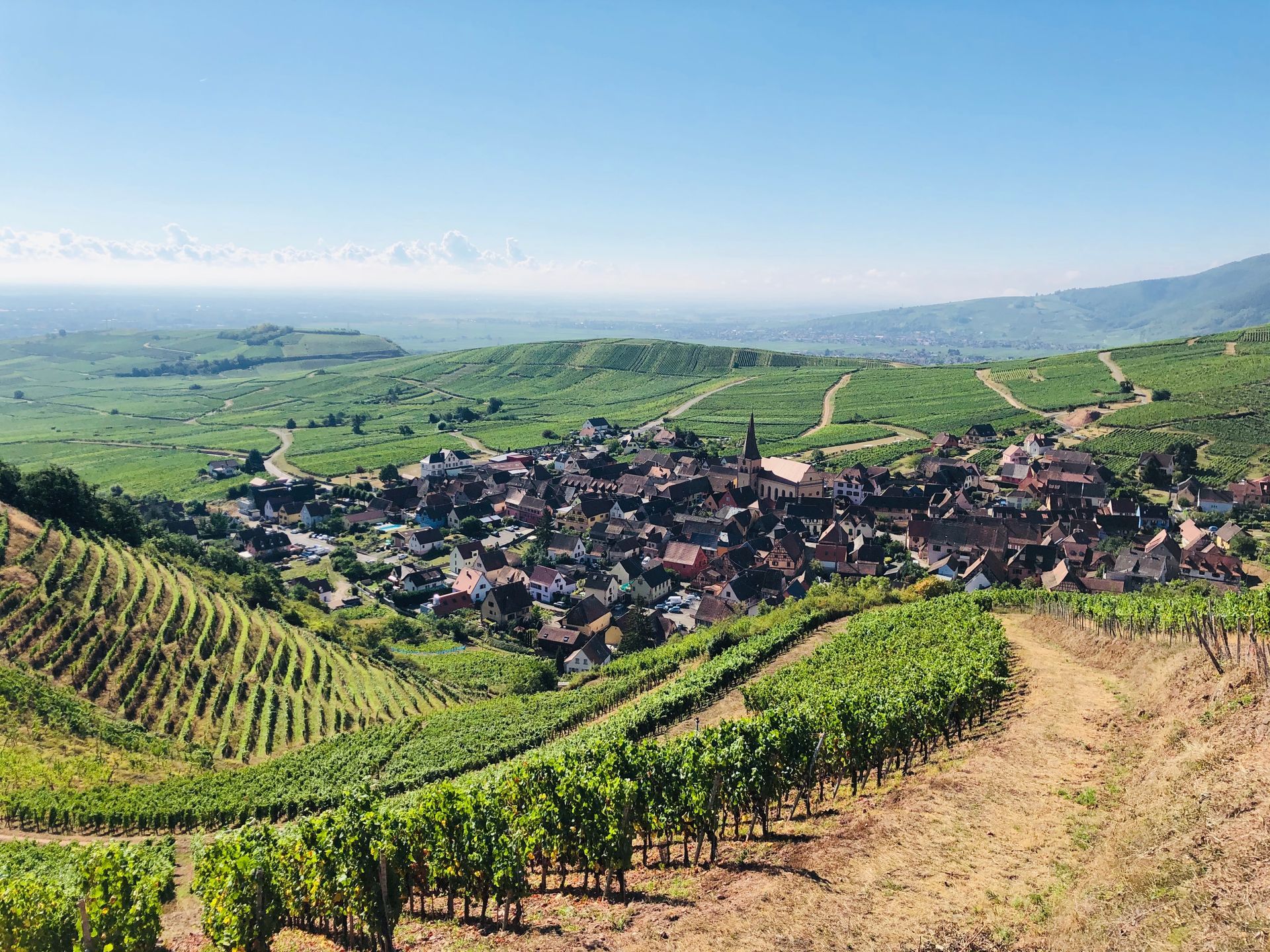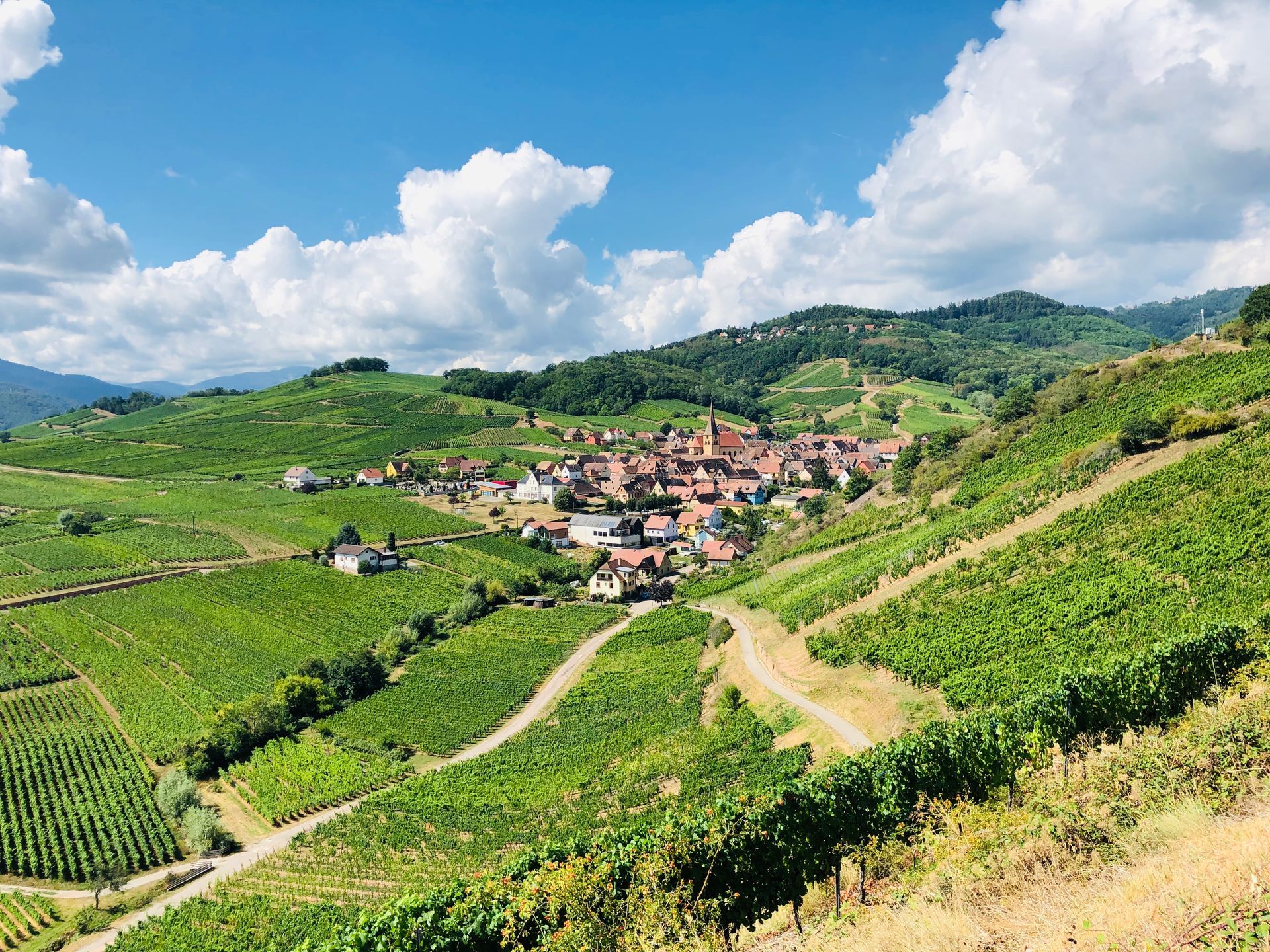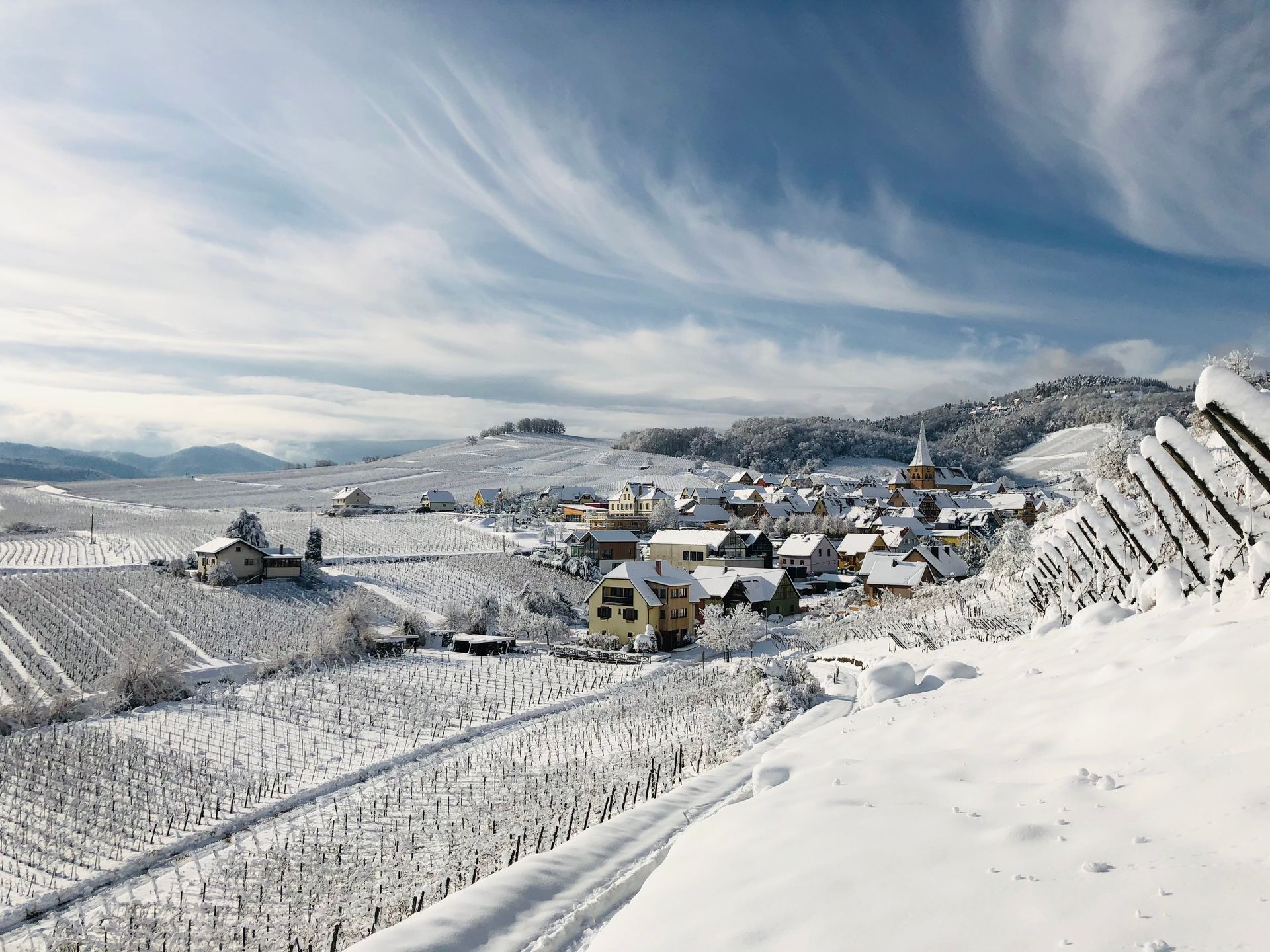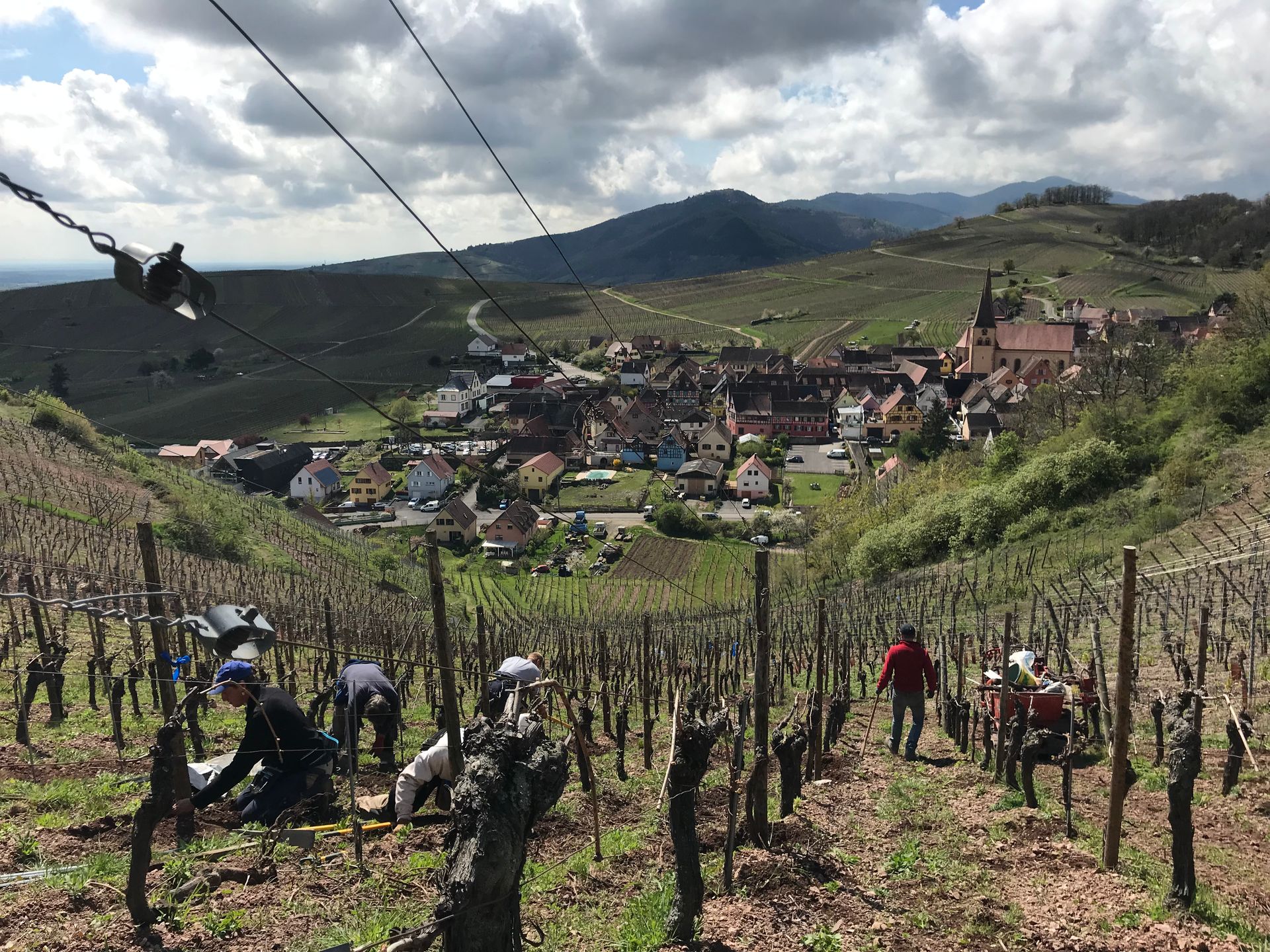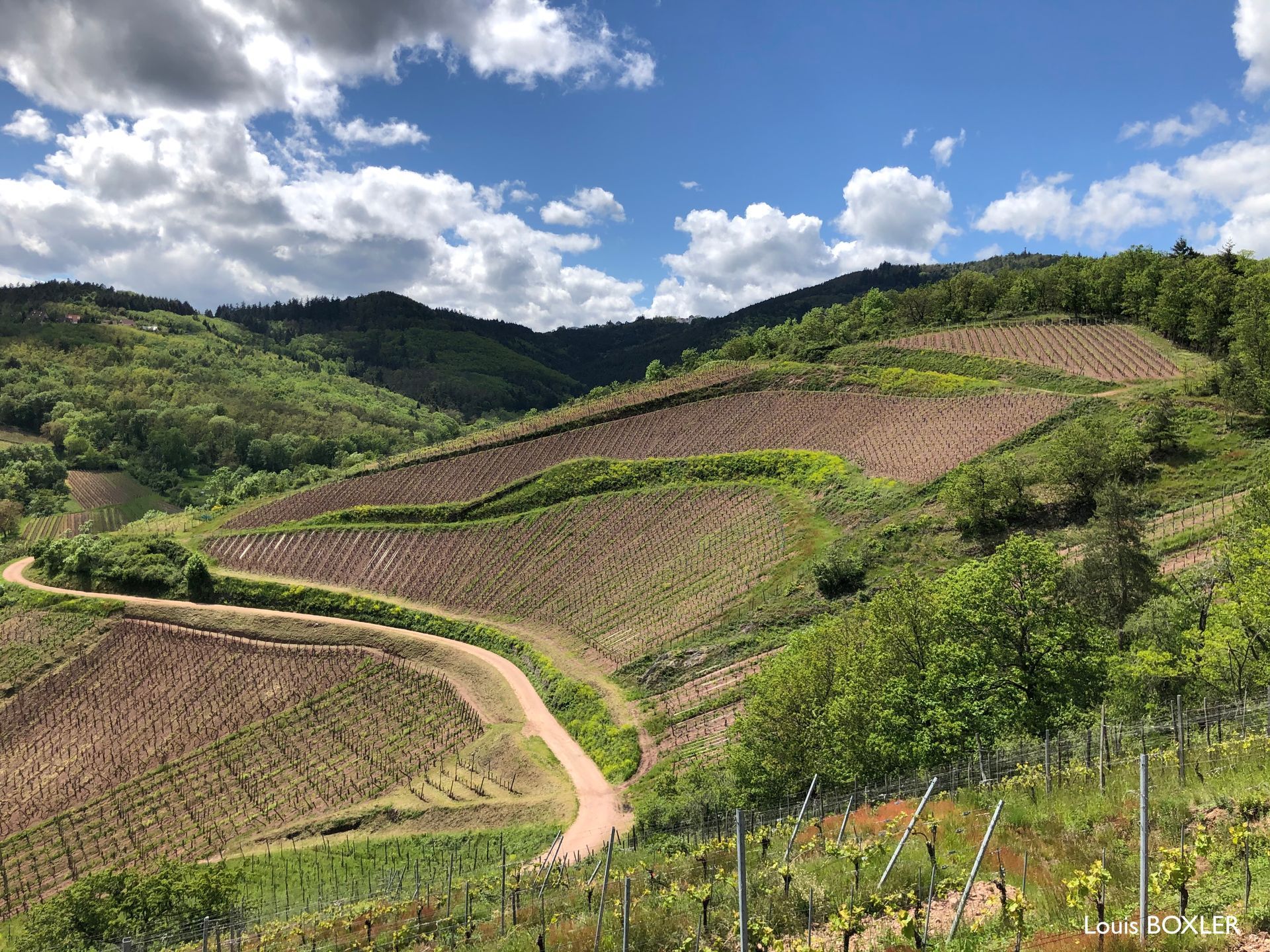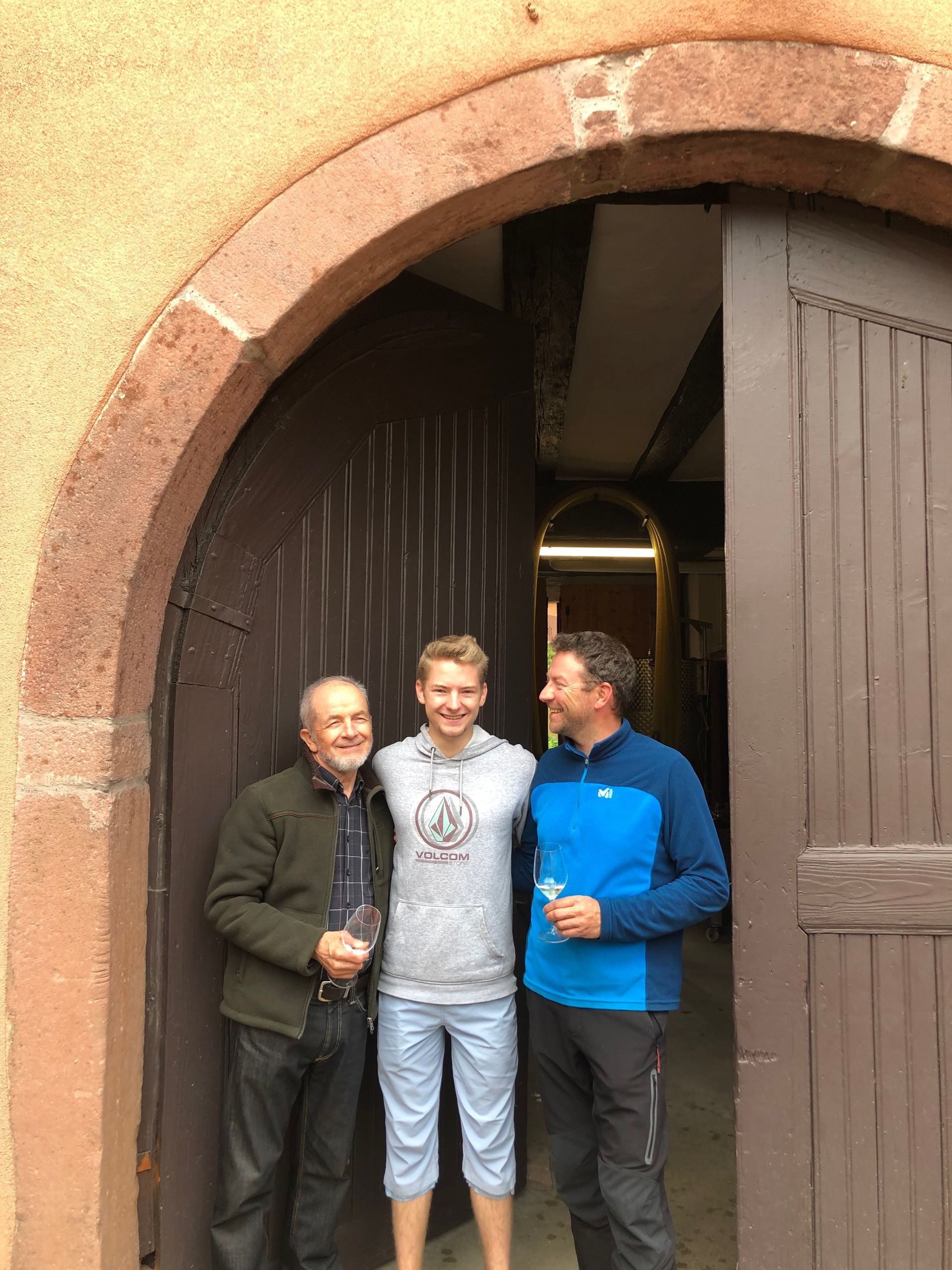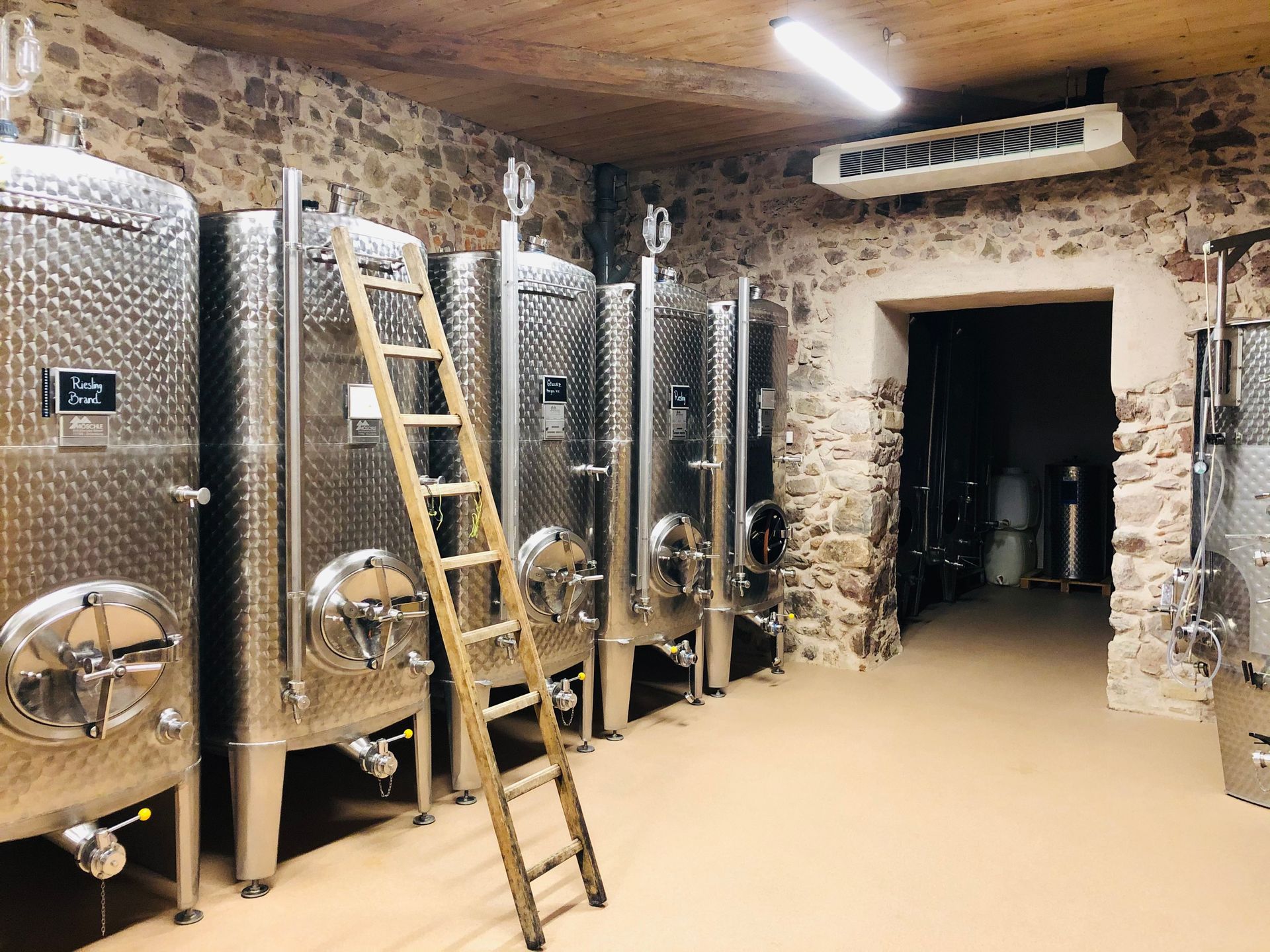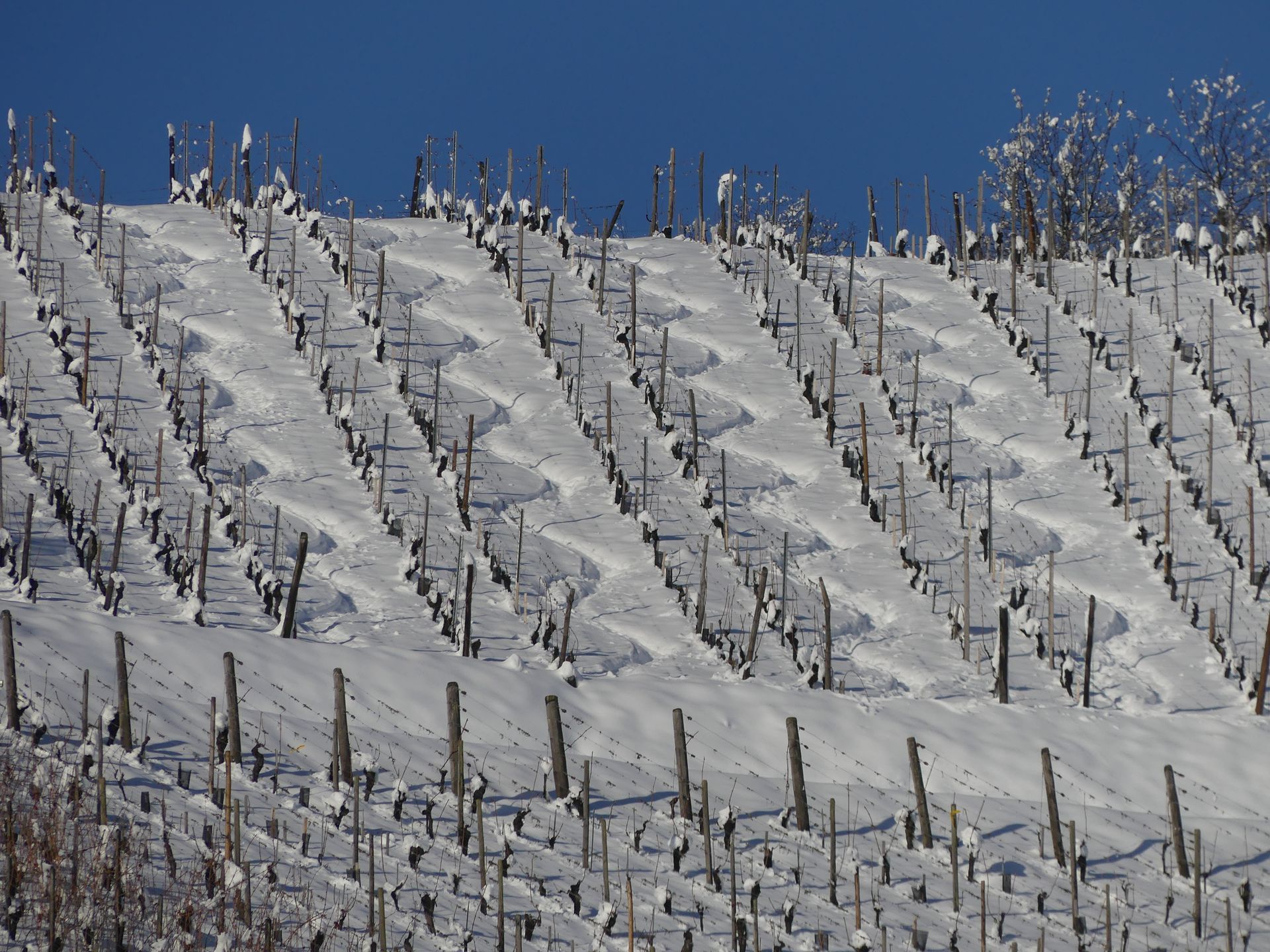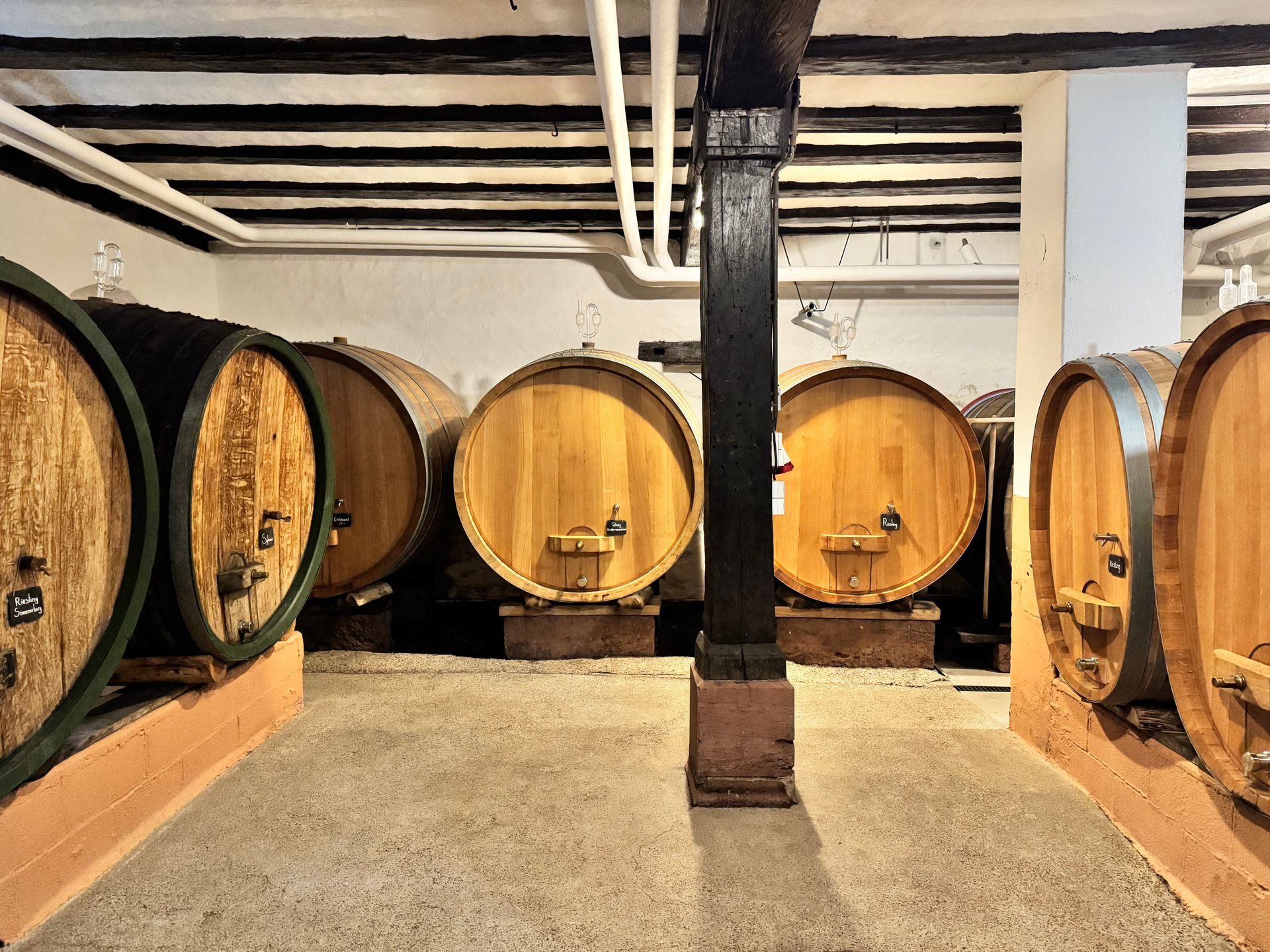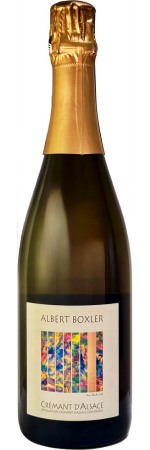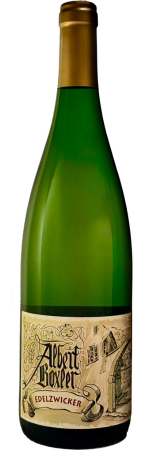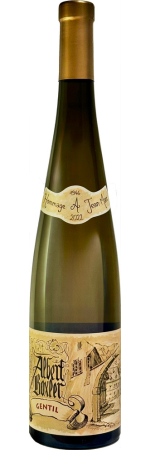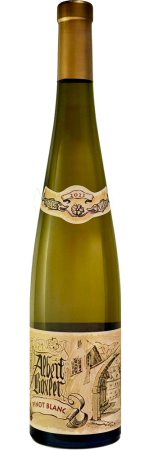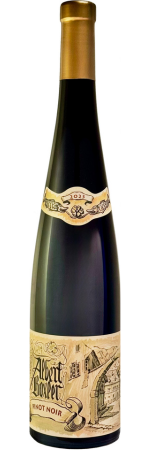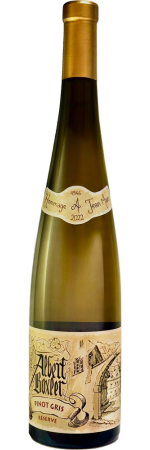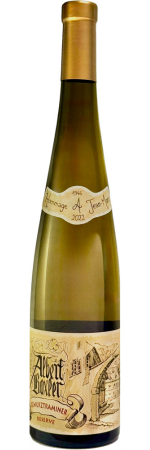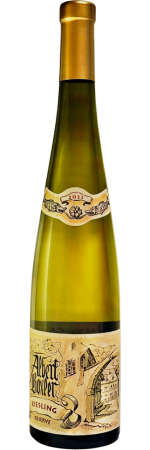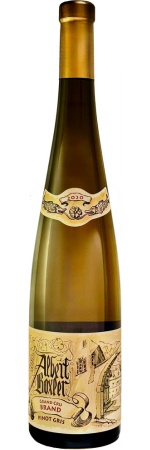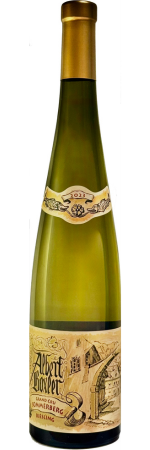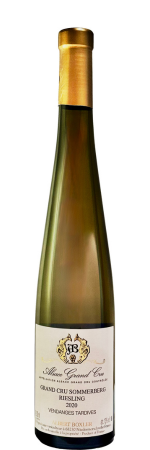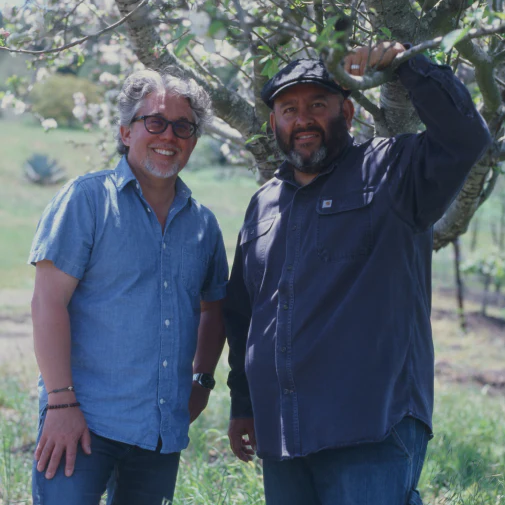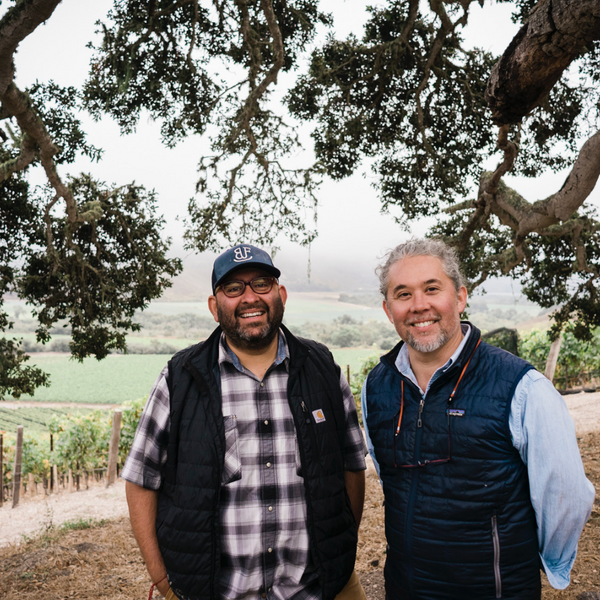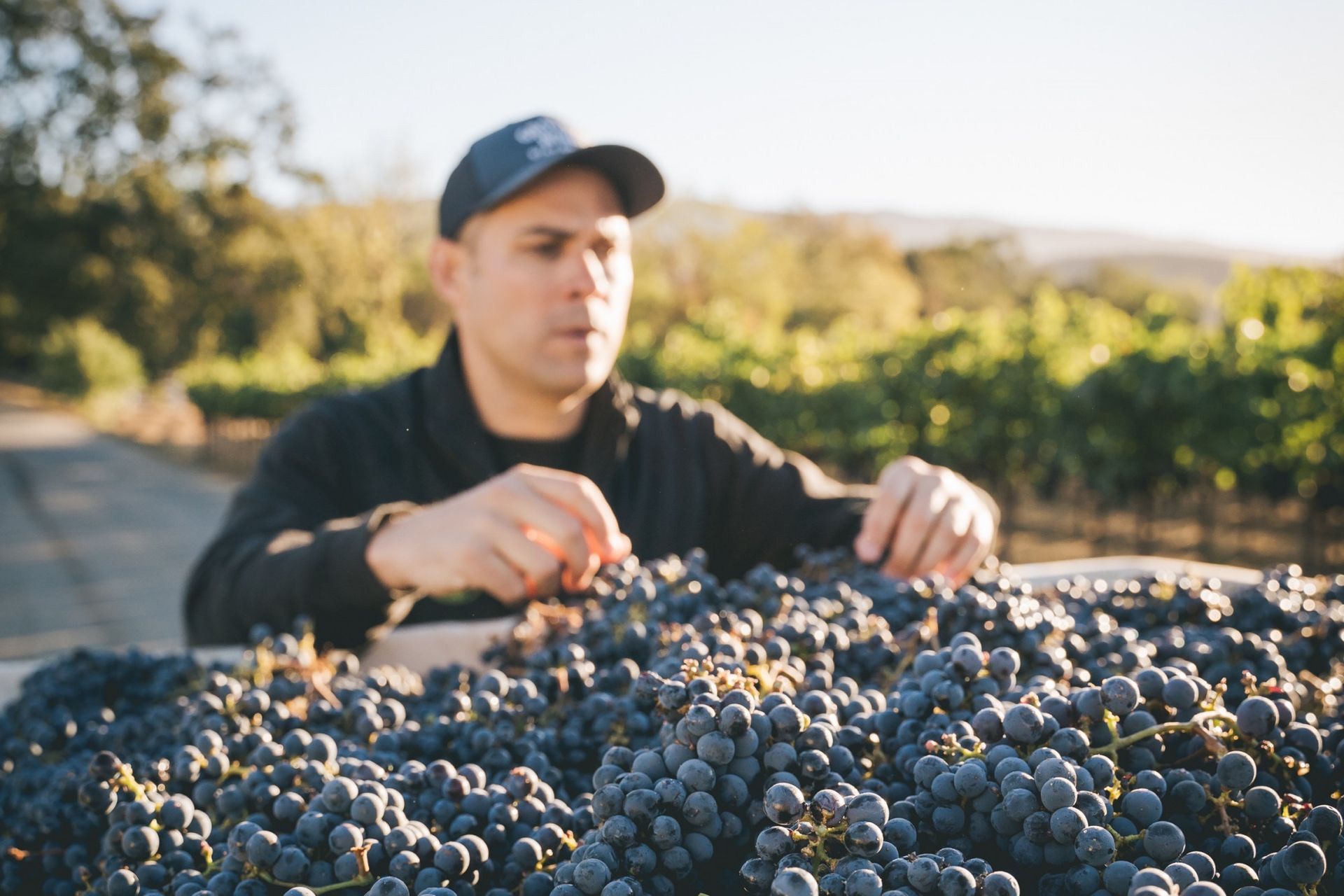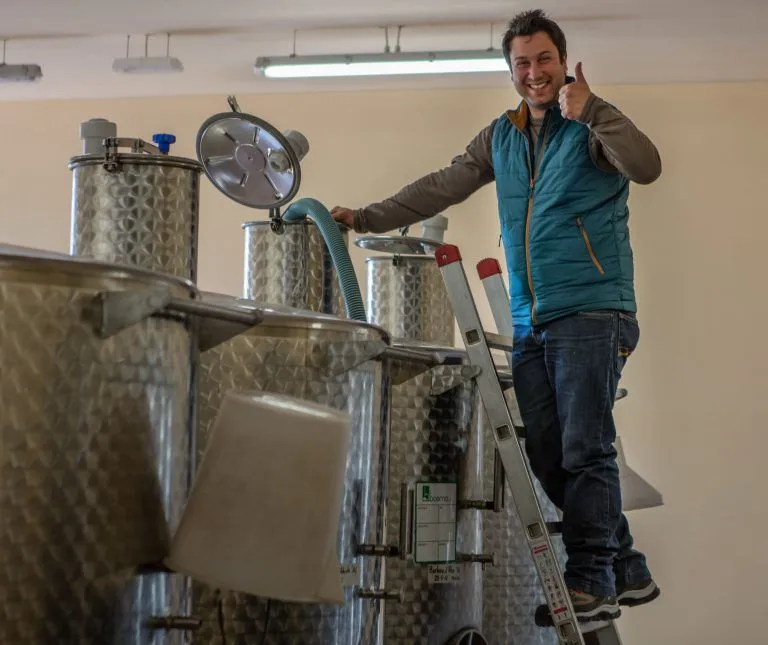Domaine Albert Boxler
Jean Boxler
Niedermorschwihr, Alsace
If any domaine in Alsace can be considered a benchmark for classical expression, it is Domaine Albert Boxler. Situated above the village of Niedermorschwihr, just west of the medieval city of Colmar, the estate is famed for its commitment to purity, structure, and a granite-driven elegance that defines some of the region’s most compelling wines.
The Boxler family settled in Alsace in 1672, originally from Switzerland. Wine wasn’t always their primary occupation; for much of their history, the family operated a hotel and restaurant. That changed in 1946, when Albert Boxler returned from Montana and vinified his first vintage. The label his cousin designed that same year is still used today — a visual declaration of the family’s reverence for tradition.
Today, the domaine is led by Jean Boxler and his son Louis, the 11th and 12th generations of the family to steward these vines. They farm 13.8 hectares, almost entirely on the vertiginous granite slopes of Sommerberg and Brand, two of the most iconic Grands Crus in Alsace. These vineyards are not just steep — they are extraordinarily demanding. Many parcels can only be worked by hand, with pickaxes required to cultivate the terraces. In return, the soils offer remarkable complexity: pink granite, quartz, and seams of limestone that lend both structure and aromatic finesse.
Boxler’s vineyards lie at the heart of the Haut-Rhin, the southern half of Alsace where the majority of the region’s 51 Grand Crus are found. The area’s defining feature is the Vosges Mountains, which cast a deep rain shadow over the vineyards. This geographic barrier creates one of the driest and sunniest climates in France, second only to Béziers and Perpignan in terms of annual rainfall. Colmar, just a few kilometers from Niedermorschwihr, receives less than 500 mm of rain per year on average — a factor that encourages both full ripeness and the production of concentrated, age-worthy wines.
Unlike the Bas-Rhin to the north, where the Vosges are lower and wines can be lighter, the Haut-Rhin’s sheltering peaks foster power and precision. The result is a unique viticultural climate: sunny but temperate, with cool nights and an enormous mosaic of soil types due to tectonic faulting and ancient geological shifts. Local growers claim over 800 distinct terroirs — a staggering number when compared to Burgundy’s 60.
The Grand Cru slopes of Sommerberg and Brand exemplify this complexity. Sommerberg, rising just behind the winery, is composed of coarse granite soils on terraces as high as 400 meters. Brand, facing slightly warmer exposures, shows more aromatic intensity and generosity. These distinctions echo in Boxler’s wines, which highlight micro-parcel variation across multiple bottlings from both sites.
The estate has been certified organic for over 20 years, although the certification is not promoted on the labels. Farming is deeply low-intervention and includes natural plant-based sprays made from nettle, elderflower, and horsetail. No fertilizers are used, and vines are only replanted when they die. Some vines date back more than 80 years.
Harvesting is done entirely by hand, with selective rounds of harvesting (tries) employed in certain parcels. In the cellar, three pneumatic presses are used for long, gentle extraction over 8 to 14 hours. After cold settling, fermentations begin spontaneously, driven by indigenous yeasts.
Most wines ferment and age in large, neutral oak foudres, many over a century old. Wines rest on their lees for 11 months, gaining texture without bâtonnage. All movement of wine is done by gravity, and only minimal sulfur is added at bottling. Gewürztraminers, Vendanges Tardives, and Sélection de Grains Nobles are fermented in stainless steel to preserve freshness and aromatic clarity. Fining is never used, and filtration is rare.
This minimal intervention, terroir-first approach yields a portfolio of about 25 cuvées each year, each offering a clear lens into its site. Even the “basic” Riesling, from young vines at the upper edge of Sommerberg, is tight, stony, and persistent. The Riesling Réserve (labelled "JV") comes from younger vines on Sommerberg’s southwest-facing flank. The Sommerberg Grand Cru Riesling, by contrast, is sourced from 40+ year-old vines and showcases ripe quince, juniper spice, and remarkable verticality.
In addition to these core wines, Boxler bottles single-parcel Grand Cru Rieslings from Sommerberg: Scheibenberg, Eckberg, and Dudenstein, the last of which includes vines from Albert’s original 1946 replanting. The Brand Grand Cru Riesling offers a more lifted, crystalline style, and a Kirchberg subparcel bottling adds depth and nuance.
While Pinot Gris has a mixed reputation in Alsace, Boxler treats the grape with discipline and transparency—it is in fact his 2014 Brand Grand Cru Pinot Gris I enjoyed at The Modern in the MOMA a couple years ago that set me on my long pursuit to sign this domaine. His Brand Pinot Gris is not unlike his finely structured and full Réserve bottling, but with even more richness and minerality and length. A profoundly age-worthy wine.
In warmer years, late-picked grapes contribute to impressive Vendange Tardive and SGN cuvées, where passerillage and botrytis concentrate both sugar and acidity.
Gewürztraminer achieves extraordinary clarity here. The Réserve, grown on limestone parcels in Heimbourg and Pfoeller, offers perfume and balance. The Brand bottling emphasizes restraint and mineral structure over sweetness.
The domaine also produces outstanding Pinot Blanc and Auxerrois, often blended. The Pinot Blanc Réserve, partly sourced from old vines in Brand, displays floral lift and a whisper of smokiness — a regional hallmark. The Edelzwicker Réserve, a noble field blend of Pinot Blanc, Auxerrois, and others (often including Sommerberg fruit), offers texture, freshness, and Alsatian charm.
Even less common varieties shine: Muscat, especially from the Brand Grand Cru, retains dryness and vivid aromatics. Sylvaner is produced in small quantities with firm acidity and a spring-like herbal freshness. A Chasselas bottling, rare for its typicity, rounds out the white lineup.
Pinot Noir, which historically struggled in Alsace, has become more serious in recent years. Boxler’s “S” bottling, grown on Sommerberg, is vinified in neutral barriques with partial whole-cluster fermentation. It is mineral, finely textured, and firmly within the Burgundian idiom.
Finally, the Crémant d’Alsace — a blend of Pinot Blanc, Auxerrois, and Pinot Noir — is aged for four years on the lees and finished with a dosage of just 2.5 g/L. It’s technically Extra Brut and stylistically precise, saline, and energetic.
For lovers of sweet wines, the domaine offers Vendange Tardive and Sélection de Grains Nobles bottlings from both Pinot Gris and Riesling. A standout is the Sommerberg SGN Pinot Gris, which combines radiant acidity with botrytized complexity — a meditation in balance.
In Alsace, Riesling is king, and granite its crown. But at Domaine Boxler, every grape — from the noble to the forgotten — is allowed to speak in its native dialect. The result is a portfolio of rare purity, rooted in one of the most geologically and climatically distinct wine regions in the world.
